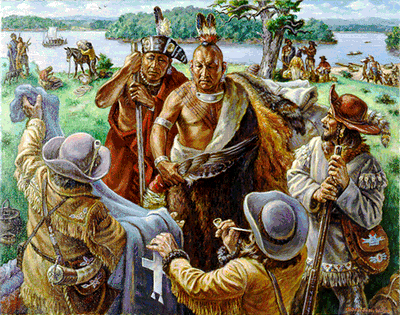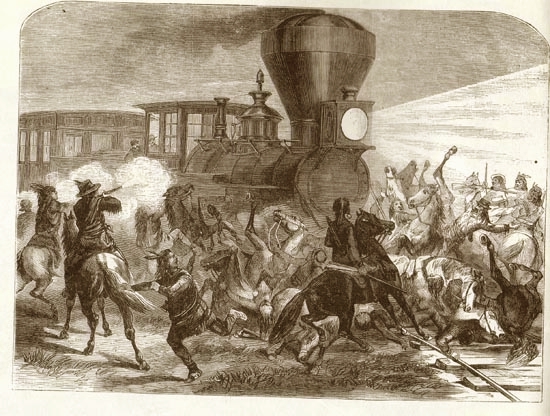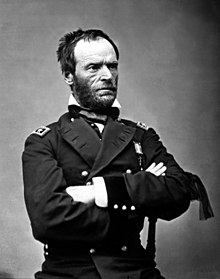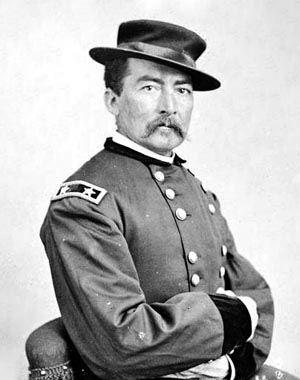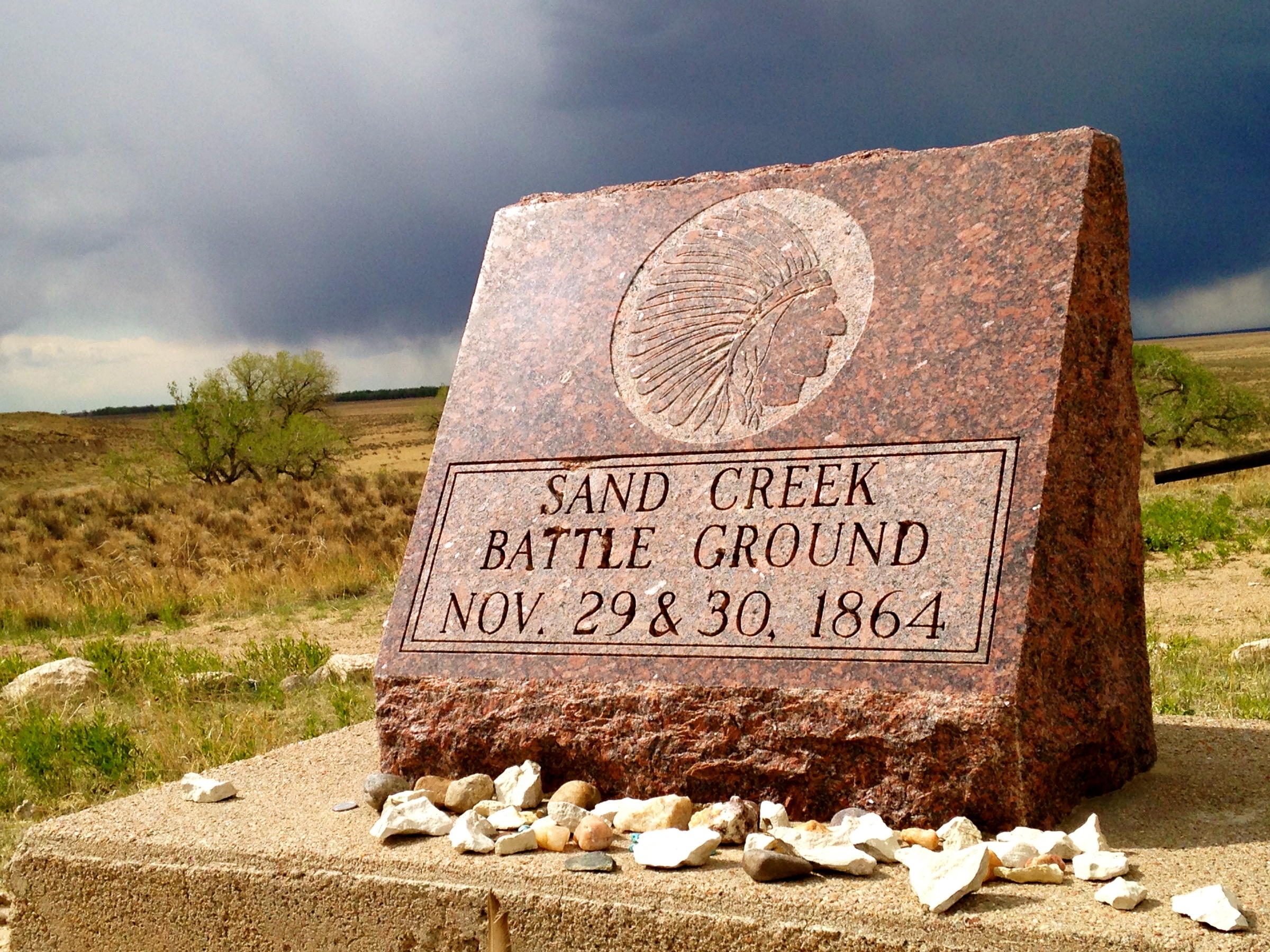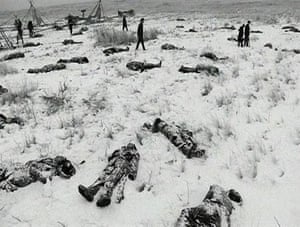By Larry Holzwarth on History Collection
The Confederate States of America were born in 1861 and suffered many disappointments in its short life. The Confederacy never achieved recognition by any other nation and prosecuted a war which had no formal end. The Civil War began with the bombardment of Fort Sumter in Charleston Harbor, which preceded the secession of four states which were critical to the Confederacy – Virginia, North Carolina, Tennessee, and Arkansas. The Southern leaders who led the formation of the Confederacy were unabashed in their support of the slavery system. Its Vice-President, Alexander Stephens stated clearly that the new government formed by the seceding states rested upon “…the great truth that the negro is not equal to the white man; that slavery – subordination to the superior race – is his natural and normal condition.”
Both Delaware and Maryland were states in which slavery was legal but neither chose to join the Confederacy, although Maryland did send troops to fight in Lee’s Army of Northern Virginia. The Confederate Government entered into treaties with the Choctaw and Chickasaw Tribes, and granted representation for the Five Civilized Tribes in the Confederate Congress. As in the United States Constitution, a site for a new capital city for the Confederacy was specified in its Constitution, although it was never built and Richmond, Virginia served as the Capital for most of the war.
Here are some interesting facts regarding the Confederate States of America which are often overlooked.
Government Intervention in Private Industry
Although the Confederate States seceded in part to support the rights of freedmen and to limit the intrusion of federal government it quickly established national policies which seized property and forced compliance with the war effort. The South had a widely agrarian economy and little industry in comparison to the North, but nonetheless would have been ranked as the fourth richest economy in the world in 1860 had it been recognized as independent of the United States.
In both agriculture and manufacturing a significant portion of the work force was slave labor. Richmond’s Tredegar Iron Works, the third largest in North America, used slaves for almost half of its work force. Nearby the Gallego Flour Mills was the largest producer of high quality milled flour in the world. It too used a significant number of slaves to support operations.
The Confederate Government almost immediately sought to seize control of industry and agriculture in the Confederacy. Nearly all of the products produced by Confederate factories and farms were needed to support the war effort, and Conscription acts passed in 1862 and 1863 gave the government authority to dispense exemptions to those who filled government contracts – thus protecting their workers from being subject to the draft while supplying the government.
Though the North far excelled the Confederacy in manufacturing, 70% of pre-secession exports from the United States had come from the South. The combination of a confused tariff policy, with local interests outweighing those of the government in Richmond and the Union blockade of Southern ports soon stripped the Confederacy of this economic advantage.
Early in the war cotton growers and brokers hoarded their bales in the hope of obtaining higher prices from Europe due to shortages of the commodity. This severely weakened the cash flow to the Southern Railroads, which moved cotton from the inland plantations to the ports. The loss of jobs as a result left the railroads in a poor position to support the war effort and the Confederate Government responded by 1863 when it placed control of all Southern Railroads in the hands of its military commanders.
Suppression of Civil Liberties
The Confederate States Government frequently and virulently condemned Abraham Lincoln as a tyrant throughout the Civil War, trying to impress the rest of the world with the idea that the Confederacy was the true cradle of American liberty and freedom. But suppression of civil liberties in the South was forceful and widespread.
In August 1861 the Confederate Congress passed the Alien Enemies Act and the Sequestration Act. The first made it mandatory for any citizen in the Confederacy to formally acknowledge support of the government or be subject to arrest and deportation. The second gave the government the authority to confiscate the property of any non-citizen. The Confederate government invoked the Sequestration Act to seize Monticello, the former home of Thomas Jefferson, which was then owned by a United States Naval Officer.
That same month Jefferson Davis created the office of Habeas Corpus Commissioner. The Commissioner had the power of the courts and could arrest anyone in the Confederate States and imprison them indefinitely, without being formally charged, denying them legal representation. Persons so charged often found the only means of escaping their quandary was to join the army as demonstrated proof of loyalty.
By Autumn of 1862 travel in the South required the obtaining of a pass, issued by the government, and enforced by the military and by the Confederate Secret Police. The sale of intoxicating liquor was banned at the same time.
The required use of travel passes – essentially domestic passports – led to the Army establishing manned checkpoints and searches on trains and in depots to ensure all travelers were carrying the appropriate documentation. Those found to be in non-compliance with the law fell into either military custody as a possible deserter or spy, or into the hands of the Habeas Corpus Commission as an undesirable alien. Abuses of both laws to settle old grudges were widespread.
Conscription
The first military draft law to be enacted in North America was passed by the Confederate Congress in the Spring of 1862. White men between 18 and 35 years of age were determined by the government to belong to the Confederate Army for a period of three years, and all men then enlisted in the Army were extended, regardless of the terms of their enlistment, to a period of three years. The draft law specified that draftees would serve in regiments from their home state, and that draftees could purchase substitutes to serve in their stead. By September the law was extended to include all white men up to the age of 45. Draftees were called up based on the state’s ability to equip and pay them.
By 1863 the system of substitution was abolished and by 1864 men up to the age of 50 – and beginning at age 17 – were subject to the draft. Exemptions for men in specific occupations such as critical war related industries were allowed. Another form of exemption was the Twenty Negro Law. The law allowed those who owned 20 or more black slaves to be exempt as they were needed to oversee them at their work.
Conscription in the Confederacy was problematic from the beginning and grew worse as the war dragged on. Besides being fraught with fraud and deceptive practices, the practice of each state operating its own system was unreliable. Casualty lists from the front and a high rate of desertion – particularly from those under 18 and over 50 – made the demand for more men never ending.
This weakened the war effort as it took away men needed to meet the Confederacy’s demand for the goods necessary to conduct the war. Shortages among the troops of all the necessities of war grew in part because the means of distributing them were simply not there. Still Confederate leaders in the field, particularly Robert E. Lee, demanded more and more men for their armies.
Conscription in the South proved to be a major failing of the Confederacy. By the spring of 1865, as Lee was entrenched at Petersburg, all exemptions had been abolished and veterans who had lost one leg or one arm in battle were being retained in the ranks, albeit in mostly support assignments.
Failed Diplomacy
In the early days of the Confederacy many of its leaders were reliant on the sale of cotton to Great Britain and France to help achieve what the Confederate States never gained – international recognition as an independent nation. In this they ignored the fact that the European powers had other sources of cotton besides the American South – Egypt was one – and the British were dependent on large amounts of imported foodstuffs from the Union.
When the United States bluntly warned the British that recognition of or overt support for the Confederacy would mean war with the United States it was taken to heart by British leaders. Despite this several prominent British political figures advocated for support of the Confederacy for diverse reasons. The Confederates failed to capitalize on this early support and after Lincoln made the war in part a crusade to abolish slavery the potential for British intervention ended.
French ruler Napoleon III supported the idea of the UK and France issuing a joint recognition of the Confederate States, but the threat of war with the US was too much for the British Parliament to swallow, especially as British economic interests were strongly tied to the United States.
Both the French and the British did provide some support to the Confederacy, over the loud protests of the Lincoln administration. British shipyards built several blockade runners for the use of the Confederate Navy and opened their ports to Confederate ships. France provided a loan of $15 million through several financiers and capitalists, most of which was used to acquire ships.
The question of European intervention came to an end in the summer of 1863 when several European military observers reported the devastation of Lee’s army at Gettysburg, and the nearly simultaneous fall of Vicksburg. With those two events it was evident that the South could not prevail and unwilling to antagonize the United States further, talk of European support of the South came to an end.
Food shortages
The South (and the North) had a largely agrarian economy. In 1860 about 85% of the population of the United States lived on small farms or rural communities, and excess crops were usually traded or sold locally. In the South, the large amounts of arable land planted in cotton prevented the growth of sufficient food crops to feed the region.
Several Confederate states attempted to discourage the planting of cotton, which large planters were reluctant to discontinue as a cash crop, confident in a coming boom market in Europe. Many wealthy cotton planters believed that the increase in European cotton prices would help fuel European intervention. In frustration Georgia passed quotas for cotton, exceeding of which would be criminal. Still planters stuck to their “proven” cash crop even as the blockade strangled trade.
With not enough food being grown and imports blocked by Union ships, shortages of all foods and medicines were soon evident, and grew worse with each month the war went on. The demand of the Armies in the field added to the woes of the home front.
Southern families sought alternatives for coffee, by 1863 nearly non-existent in the South. Some replaced coffee beans with toasted okra pods, others used the leaves of the chicory plant as a substitute. Items like flour became scarce despite the presence of multiple mills in the south. There was no way to move the grains to the mills, and little grain to begin with.
By 1853 food riots were commonplace in many of the South’s larger cities, including the capital at Richmond, where the Congress and administration witnessed the fruit of their labors. The combination of food shortages and the rampant inflation eroding the strength of the Confederate dollar continued to grow worse until the end of the war, when the southern railroads were completely destroyed, and the means of moving what little food there was became non-existent.
The Glanders Epizootic
Although the Civil War was revolutionary in its use of trains to move large numbers of troops quickly, it still required what all armies for several millennia had required – horses and mules. Horses and mules pulled wagons, ambulances, artillery, carried cavalry, provided power to erect buildings, and did all of the labors they have done seemingly since time began. On the battlefield they were just as susceptible to injury as their human masters, and the armies of both sides of the conflict required thousands of them to support the war.
In the Confederate Army it was common practice for cavalry mounts to be privately owned until 1863, when the Army began to issue mounts. Depots were established in areas near the fronts for the stabling and care of horses. One such depot, near Lynchburg Virginia, stabled more than 6800 horses over fifteen months, of which only about one thousand made it to the army. The rest died or were rendered unfit for service by glanders.
Glanders is an infectious disease, often fatal, which is transmitted via body fluid and was likely spread throughout the closely stabled horses at water troughs. Lynchburg was not the only site where glanders struck Confederate livestock. From 1861 to 1866 an epizootic of glanders wreaked havoc on Confederate mules and horses. Animals became ill, weakened and died, or were shot when symptoms displayed to prevent the spread of the disease.
When the Civil War began about 2.5 million horses and mules were available in the South, more than half of these were lost during the war. By contrast, Union troops had a seemingly inexhaustible supply of fresh mounts and draft animals available to them throughout the war. The loss of animals had a negative impact on the mobility of the Confederate troops by the end of the war.
Glanders was experimented with as a biological weapon by German troops in the First World War. It is now known to be treatable with antibiotics, unavailable to the medical practitioners of the Civil War. There hasn’t been a case of the disease reported in the United States since the 1940s, but during the period of the Civil War it ravaged the stock of the Confederate Army.
State’s Rights
One of the leading arguments for secession was that each state voluntarily entered its contract with the Union and thus each state retained the right to voluntarily leave it, based on the sovereignty of its people. It has been argued that this adherence to the rights of individual states over the authority of a central government is a leading cause of the failure of the Confederacy.
Both President Jefferson Davis and Vice President Alexander Stephens were elected to single six year terms of office under the Confederate Constitution. Davis took many steps to centralize authority, such as the conscription laws, over which he was opposed by several state governors and his Vice President, who called Davis’s usurpation of authority tyrannical. “History proved the dangers of such unchecked authority,” said Stephens in opposition to a strong central government.
By 1863 some governor’s opposition to conscription had led them to deny the use of troops from their state by the central government, claiming that they were needed defend against local threats. When the draft exemption for newspaper editors and reporters was eliminated many states protested that it was a thinly veiled attempt to stifle dissent by sending editors into the Army.
Despite the wide range of political differences in the Confederate Congress and throughout its government, the emergence of organized political parties did not take place in the Confederacy. Without a two party system the debate during the Congressional elections of 1863 were largely without any national, or even regional focus, and instead concentrated on narrow personal levels.
Jefferson Davis was a former US Senator and Secretary of War and was well aware of the need to prosecute a major war through an unbending, united effort. His attempt to consolidate the power he needed to do so made him largely unpopular as President of the Confederacy, and the growing shortages at home and military failures after 1863 further eroded his authority and popularity.
Patent Office
As an independent nation with its own government and laws, the Confederate States of America soon acquired much of the bureaucracy of modern governments, including a Post Office, Mint, (by taking over former US Mints) and Patent Office. Rufus Rhodes, a former official of the United States Patent Office from Mississippi, served as the only Commissioner of the Confederate Patent Office. During its first year in existence – 1861 – the office issued 57 patents, in contrast with the over three thousand issued by the US Patent Office.
Over a third of the patents issued during the first year were for improvements to firearms or other weapons of war, although other patents for farm implements, a steam driven plow, textile machines, and other inventions were issued. The patent office suffered from a lack of working space (it was located on the third floor of the Mechanic’s Institute in Richmond) and reference materials, as well as a budget which precluded the acquisition of books and technical literature essential to its work.
Over the course of its existence the Confederate Patent Office would issue 266 patents. The design and manufacture of the armor plate which covered the former USS Merrimack leading to its becoming the CSS Virginia was patented by its designer, and contested by its builder. Both were awarded patents for their work on the ship.
Review of the surviving records of the Confederate Patent Office reveals how some of the privations of war affected the South as the war went on. By 1863, shortages of leather led to the application of no fewer than four patents for wooden soled shoes.
The Confederate Patent Office issued one of the first patents which was developed around submarine technology, for the CSS H L Hunley. The prevalence of the Union blockade led to numerous patents being applied for based on new methods of destroying Union ships, including mines, electric torpedoes, and delayed fuses. The Confederate Patent Office and its records were officially destroyed after the fall of Richmond, but further research into many of the innovations found there continued under the auspices of the US Navy after the war.
The Confederate States Army
Officially the Confederate States Army was founded as a volunteer force by the Provisional Confederate Congress, with control of its operations in the hands of Provisional President Jefferson Davis in February 1861. The loss of records during and following the war make it difficult to estimate the total number who served in it, some believe that somewhere between 500,000 and 1.5 million while others propose 750,000 to 1,000,000 as more realistic numbers. In addition, an untold number of slaves were forced into service to build encampments, fortifications, roads, and other support needed for military operations.
The Confederate Army’s organization was based on that of the United States Army, unsurprisingly since many senior Confederate officers had served in the US Army at some point. The Army was made up of infantry, cavalry, and artillery and the basic unit of command was a company, theoretically made up of one hundred soldiers. Ten companies made a regiment. As the war went on and casualties were absorbed while replacements were scarce, most regiments sank to less than half their optimal size.
There were several field armies, which in the South were normally named for the region of their operation, as opposed to the Northern custom of naming them for major rivers. Robert E Lee commanded the largest Confederate Army, called the Army of Northern Virginia.
Regiments were raised, trained and supplied by the individual states and bore the name of their state and their regimental number, for example 4th Virginia. Eventually over 1,000 regiments were raised by the Confederate states for the army, in comparison the Union raised over 2,000.
In the early years of the war the Confederate Armies were successful in combat in the East, mostly in Virginia and Maryland, and less so in the west. Casualties were enormously high for both sides. Despite the long-lived legend of the Confederate’s esprit d’corps, by 1864 Jefferson Davis estimated that there were over 100,000 men then labeled as deserters in the South, having seen enough of war and the growing strength of the Union armies.
Confederate States Navy
Although it lasted but a short time (1861-1865) and won no major victories against the Union Navy which disrupted the Union blockade, the Confederate States Navy achieved a reputation for daring, innovation, and professionalism. At its high point it counted over 100 ships, most of which operated in American coastal waters and rivers.
It produced one of the first ironclad warships, which sank one US wooden ship, ran another aground, and would have done more damage if not for the timely arrival of a suitable opponent for its new technology. It produced the first submarine which sank an enemy vessel in combat, although it sank itself in the process, killing its crew. The Navy was supplemented by the use of privateers – contracted commerce raiders to capture or destroy enemy ships – which operated mainly out of the waters of the Gulf of Mexico, despite Lincoln’s pronouncement that captured privateers would be treated as pirates (they weren’t).
In conjunction with the Navy the Confederate government operated the Confederate States Lighthouse Board, which worked with the Navy but was officially part of the Treasury Department. It was tasked with maintaining operational safe navigation beacons along the coast. It also formed the Confederate States Marine Corps, which adopted many of the traditions of the United States Marine Corps.
The Navy’s greatest success and certainly its greatest fame – other than the ironclad Virginia– came from its commerce raiders, CSS Alabama and CSS Shenandoah. Alabama was built in Birkenhead, England and completed a raiding cruise under Captain Raphael Semmes in which it captured or destroyed 65 Union ships. Although a commissioned ship of the Confederate Navy it never in its career entered a Confederate port. It was caught and destroyed by USS Kearsgarge.
CSS Shenandoah was built in the Clyde in Scotland and transferred to the Confederate Navy while at sea before undertaking a voyage to the Indian and Pacific Oceans to destroy Union commercial ships and whalers. In late June 1865 its Captain, James Waddell, learned of Lee’s surrender from a captured crew, later in August he learned that the war was over from the crew of a British ship. Waddell took his ship to Liverpool, surrendering there on November 6 1865, the last surrender of a Confederate unit of the Civil War. Like Alabama, Shenandoahnever entered a Confederate port during its service in the Confederate States Navy.
:max_bytes(150000):strip_icc()/Fort-Sumer-1861bombardment-4500-56a488685f9b58b7d0d76f31.jpg)



